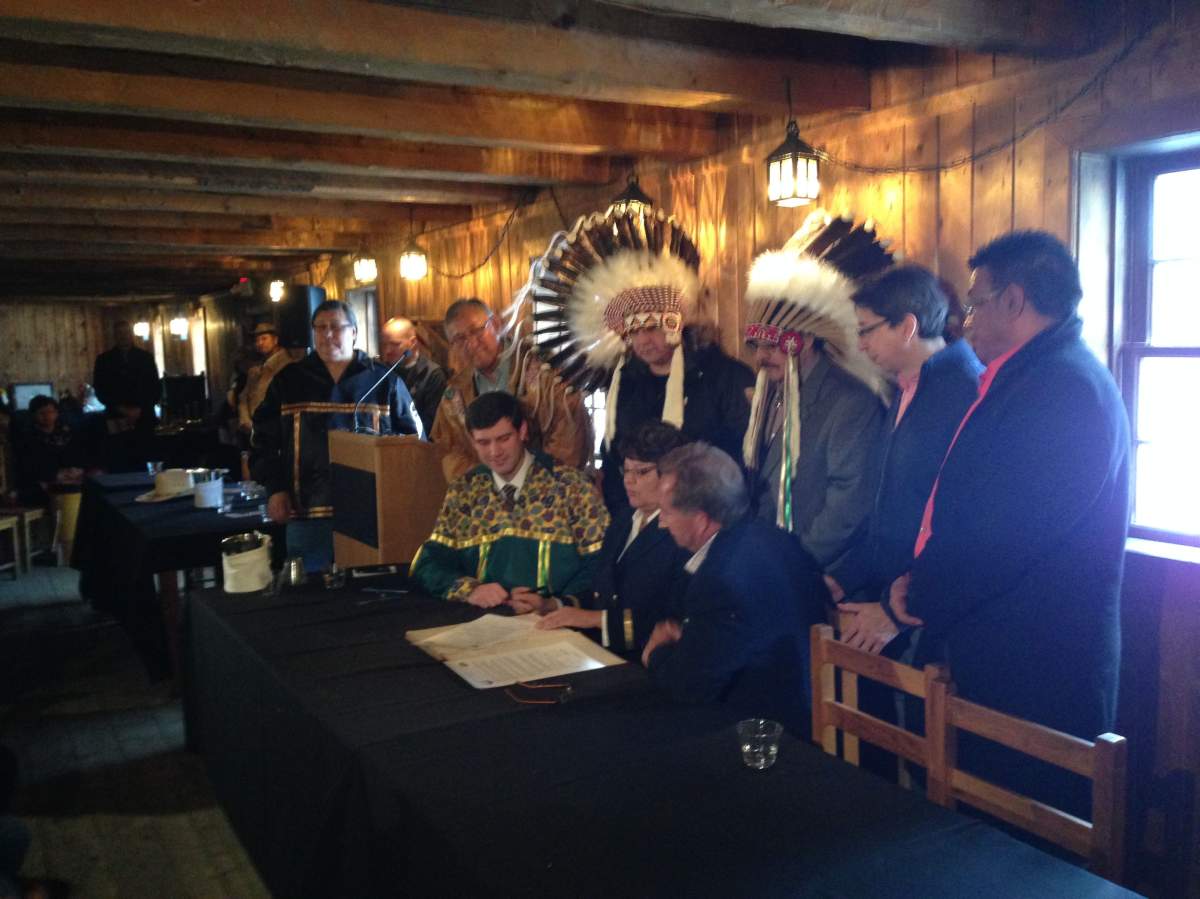Three announcements over the past few days speak to the increasing amount of engagement between the government of Alberta and First Nations communities, particularly in the northern part of the province.

On Thursday, Premier Rachel Notley spoke at the Northern Leaders Summit in Slave Lake and talked about a number of issues — including pipelines, the environment and schools — that are of vital interest to First Nations communities.
Several cabinet ministers were on hand to hear from First Nations officials, as well as from other leaders in northern Alberta.
“I think part of the reason for more dialogue and more interest from the First Nations is because the leadership realizes that we are willing to listen to them,” economic development and trade minister Deron Bilous told me. “We’ve taken on a role in economic development through our advocacy on behalf of the energy sector. We’re adding new schools and encouraging more participation by Indigenous youth.
“We’re trying to help them with some of their drinking water woes, although that is not really our responsibility. But we’re not sitting around waiting for the federal government to address some of these issues.”
That same day, a new 166,000-hectare Biodiversity Stewardship Area was announced for the lands adjacent to the southern boundary of Wood Buffalo National Park. The project brings together First Nations, industry and government to create an area that is the size of Calgary, Red Deer, Edmonton, and Fort McMurray combined. Tech Resources, Cenovus Energy, and Imperial Oil are some of the industry players at the table.
WATCH: Striking a balance between First Nations and industry over fish farms

“This project really started with the Mikisew Cree,” environment and parks minister Shannon Phillips told me. “The Mikisew have long been concerned about the deterioration of their spiritual home. Thanks to this BSA, we will help sustain wildlife for future generations and build on what is already the largest contiguous protected boreal forest in the world.”
Other First Nations have also been involved in the discussions. In a statement, Mikisew Chief Archie Waquan said that “moving the BSA forward is an important first step towards reconciliation and an initial milestone on the way to implementing the Nikechinahonan framework, which is a vision of the Mikisew Elders and community that is critical to our cultural survival.”

Get breaking National news
The project is now into a thirty-day period of consultation where any Albertan can offer a view.
Then on Friday, education minister David Eggen rolled out the revamped Kindergarten to Grade 4 curriculum, which has been in development now for a couple of years. It includes a hefty amount of new thoughts on various aspects of the Indigenous experience in this part of the country.
“A lot of this material will be field tested over the next year,” Edmonton Public School Board chair Michelle Draper told me. “We have to allow time for teachers to become comfortable with the new curriculum. We’ll see if there are any hiccups. And as boards, we need to look at what, if any, resources have be be set aside to make this project workable.”
And even as the K-4 curriculum is being field tested, work continues on the Grades 5-9 curriculum, which is due to be finalized a year from now. As well, Grande Prairie Regional College will become a degree-granting institution in the next few months, and officials are going through the academic program to identify anything that might be specifically targeted at First Nations students.
Twenty-five years ago, I recall sitting through three days of a House of Commons aboriginal affairs committee hearing in Red Deer, at which most of the chiefs of the day were present. Virtually the entire hearing was tied up in the recounting of shortcomings by governments after the treaties were signed in the late 1870s.
How refreshing it is today to see good suggestions, good arguments, and a constructive dialogue coming from the First Nations communities as they seek to protect what is important to them and to contribute to a stronger Alberta.
In a world full of finger-pointing and arguing, perhaps this will turn out to be a good news story as we head towards 2019.






Comments
Want to discuss? Please read our Commenting Policy first.